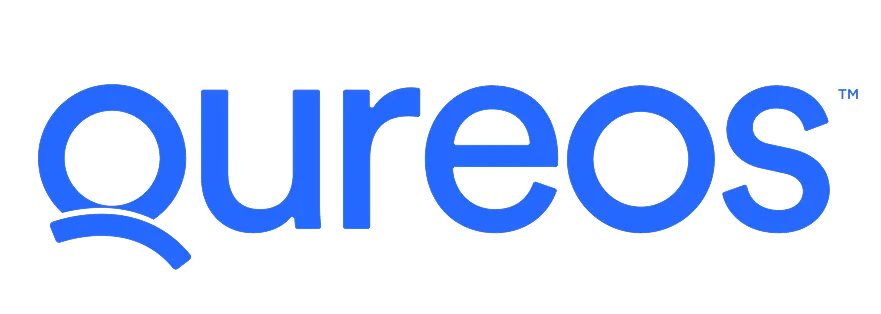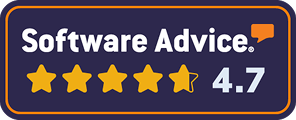Quick Answer: The best way to answer "Why do you want to leave your current job?" is to focus on professional growth, avoid negativity about your current employer, and connect your reasons to opportunities at the new company. Use the BRIDGE method: Background → Reason → Impact → Direction → Growth → Enthusiasm.
{{quick-link-3="/sandbox/home-v3"}}
Related Articles:
- Explain the Career Gap in Your Resume
- Tell Me About a Time You Failed
- What Is Your Greatest Strength
- What Are Your Salary Expectations
- Why Should We Hire You
- What Is Your Leadership Style
- How Did You Hear About This Position
- Tell Me About Yourself in a Job Interview
Why Interviewers Ask This Critical Question
According to the 2026 Global Hiring Survey by LinkedIn, 89% of hiring managers consider this question essential for evaluating candidates. Here's what they're really assessing:
🎯 Professional Judgment and Maturity
Employers want to understand your career goals, the kind of work environment that you're seeking and the kind of work that you find fulfilling. They're testing whether you can discuss workplace challenges professionally without burning bridges.
Research insight: Candidates who maintain positivity when discussing previous employers are 76% more likely to receive job offers.
🚩 Red Flag Detection
Hiring managers are trained to identify concerning patterns:
- Job hopping without clear progression
- Blame-focused responses about colleagues or management
- Unrealistic expectations about work environments
- Lack of accountability for workplace challenges
- Vague or inconsistent explanations
🏢 Cultural Fit Assessment
Your reasons reveal what you value in a workplace, helping them determine if their environment aligns with your expectations and work style preferences.
💡 Motivation and Commitment Evaluation
When asked, "Why are you leaving your current job?" by a hiring manager, they are seeking insights into your work ethic, motivation, and rationale for seeking new opportunities.
Suggested: Interview Questions Template For Each Job Title
20+ Sample Answers by Situation
1. Seeking Career Growth and Advancement
Situation: You've mastered your current role and want new challenges
Sample Answer: "I've spent three years at [Current Company] where I've successfully [specific achievement with numbers]. While I'm grateful for the experience and skills I've developed, I've reached a point where I'm ready for greater challenges and responsibilities. I'm particularly excited about this role because it offers opportunities to [specific growth opportunity] and aligns perfectly with my long-term career goals in [field/industry]. Your company's reputation for developing talent and promoting from within is exactly what I'm looking for at this stage of my career."
Why it works: Shows progression, gratitude, and strategic career planning.
2. Better Work-Life Balance
Situation: Current role demands excessive hours affecting personal life
Sample Answer: "I've gained tremendous experience at [Current Company] and am proud of achievements like [specific example]. However, the role has evolved to require consistent 60+ hour weeks, which has made it challenging to maintain the balance I need to perform at my best. I believe that sustainable work practices actually enhance productivity and creativity. From my research, your company's focus on results rather than hours, and your flexible work policies, align with my work style and values."
Why it works: Frames balance as a performance enhancer, not laziness.
3. Industry or Career Change
Situation: Transitioning to a different field or industry
Sample Answer: "My five years in [current industry] have given me valuable skills in [transferable skills], and I've achieved [specific accomplishments]. However, I've discovered my true passion lies in [new industry] through [specific experience/research]. I've been preparing for this transition by [specific steps: courses, projects, networking]. When I learned about this role, I saw how my unique background could bring fresh perspectives to your team while allowing me to grow in the direction I'm most passionate about."
Why it works: Shows intentional planning and explains value of different background.
4. Company Restructuring/Layoffs
Situation: External changes affecting your position
Sample Answer: "Due to recent market changes, my company underwent significant restructuring that eliminated my department and several others. While it was unfortunate, this actually gave me time to reflect on what I truly want in my next role. I've used this period to [skill development/networking activities] and am now excited to find an opportunity like this one where I can apply my experience in [relevant area] while contributing to a growing, stable organization."
Why it works: Shows resilience and proactive response to challenges.
5. Toxic Work Environment (Diplomatic Version)
Situation: Dealing with negative workplace culture
Sample Answer: "While I've learned valuable skills at my current company, I've realized the importance of working in an environment that emphasizes collaborative teamwork and open communication. I'm seeking a workplace culture that aligns more closely with my professional values of mutual respect and shared goals. From my research about your organization, including your emphasis on team collaboration and employee development, it seems like a place where I could both contribute meaningfully and thrive professionally."
Why it works: Focuses on what you want, not what you're escaping.
6. Lack of Learning Opportunities
Sample Answer: "I've been fortunate to master the core responsibilities of my current role and have consistently delivered strong results. However, I've reached a point where I'm seeking new challenges that will push my professional development forward. The learning opportunities have become limited in my current position, and I'm eager to expand my expertise in [specific areas]. This role offers exactly the kind of growth and learning environment I need to reach the next level in my career."
7. Remote Work Transition
Sample Answer: "I've delivered excellent results in my current role, including [specific achievements]. However, the company has decided to return to full in-office work, which doesn't align with the work-life integration I've found most effective. I've proven I can be highly productive in remote and hybrid environments, and I'm seeking a company that embraces flexible work arrangements as a way to attract and retain top talent. Your company's progressive approach to remote work is one of the reasons this opportunity is so appealing."
8. Startup to Corporate Transition
Sample Answer: "Working at a startup for the past three years has been incredible for developing diverse skills quickly. I've worn many hats and learned to be resourceful and adaptable. Now I'm ready to specialize and go deeper in [specific area] while working with more complex, larger-scale projects. Your company's established processes, resources, and structured growth paths would allow me to focus on [specific goals] and contribute to [specific company initiatives] in ways that weren't possible in a smaller organization."
9. Corporate to Startup Transition
Sample Answer: "My time at [Large Company] has given me solid experience in [specific skills/processes] and taught me the importance of systematic approaches. However, I thrive in environments where I can have broader impact and see direct results from my contributions. I'm excited about the opportunity to help build something from the ground up and contribute to multiple aspects of the business. Your startup's mission to [mission] resonates strongly with me, and I believe my corporate experience could help accelerate your growth goals."
10. Salary/Compensation Improvement
Sample Answer: "I've enjoyed my role at [Current Company] and have consistently delivered strong results, including [specific achievements]. As I've grown professionally and taken on additional responsibilities, I'm seeking a position that better reflects my increased value and market worth. Beyond compensation, I'm looking for an organization that invests in its people and recognizes performance, which I understand is central to your company culture."
11. Management/Leadership Opportunities
Sample Answer: "While I've excelled in my individual contributor role and achieved [specific results], I'm ready to take the next step into leadership. I've discovered that I'm passionate about mentoring others and driving team success. My current company has limited management opportunities in my department, and I'm eager to find a role where I can develop my leadership skills while continuing to deliver results. This position's focus on team leadership and development is exactly what I'm looking for."
12. New Technologies/Skills
Sample Answer: "I've successfully managed [current responsibilities] and achieved [specific results]. To stay competitive and valuable in my field, I want to expand my expertise in [specific technologies/skills]. While I've been learning these independently, I'm seeking a role where I can apply and develop these skills in a professional setting. Your company's use of [technologies] and commitment to innovation would allow me to grow while contributing immediately through my existing strengths."
13. Geographic Relocation
Sample Answer: "I've had a fulfilling experience at my current company, but I'm relocating to [location] for [personal/family reasons]. Rather than trying to work remotely when the role requires in-person collaboration, I'm seeking a local opportunity where I can be fully engaged and present. I'm excited about starting fresh in a new market and bringing my experience in [relevant area] to a new organization."
14. Company Size Mismatch
Sample Answer: "I've learned a great deal working at a [large/small] company, particularly in [specific areas]. However, I've realized that I work most effectively in [larger/smaller] organizations where [specific reason - more resources/closer collaboration/broader impact]. This role offers the perfect environment for my working style while allowing me to contribute my experience in [relevant field]."
15. Values Misalignment
Sample Answer: "While I've gained valuable experience at my current company, I've come to realize that my professional values aren't fully aligned with the organization's direction. I'm seeking a company whose mission and values resonate more strongly with mine, particularly around [specific values like innovation/sustainability/customer focus]. Your company's commitment to [relevant company value] is one of the main reasons this opportunity excites me."
16. Returning After Career Break
Sample Answer: "After taking [time period] away from my career to [reason - family, education, health], I'm energized and ready to return to professional life with renewed focus and perspective. This break gave me clarity about what I truly want in my career, and this position aligns perfectly with my goals. I've stayed current with industry trends through [specific activities] and am excited to bring both my experience and fresh perspective to your team."
17. Contract/Temporary to Permanent
Sample Answer: "I've been working on contract/temporary basis to gain diverse experience and determine what type of permanent opportunity I want to pursue. This strategy has been valuable for developing my skills and understanding different company cultures. Now I'm ready to commit to a permanent role where I can build long-term relationships and contribute to sustained growth. Your company represents exactly the kind of stable, innovative environment where I want to build my career."
18. Freelance to Full-Time
Sample Answer: "Freelancing has allowed me to develop a broad skill set and work with diverse clients, which has been incredibly valuable. However, I miss being part of a team and contributing to long-term strategic goals rather than just project-based work. I'm seeking a full-time role where I can apply my varied experience while building deeper professional relationships and contributing to sustained company growth."
19. Recent Graduate/First Job Transition
Sample Answer: "As a recent graduate, I chose my first role specifically to gain practical experience and apply what I learned in school. After [time period], I've successfully [specific accomplishments] and now have a clearer understanding of where I want to focus my career. This role represents the next logical step in my professional development and offers opportunities to [specific growth areas] that align with my long-term career goals."
20. Performance Issues (Honest Approach)
Sample Answer: "In my previous role, there was a misalignment between the expectations and my skills at that time, particularly in [specific area]. Rather than continue in a situation that wasn't working for either party, I chose to step back and address this gap. Since then, I've completed [specific training/education] and gained [relevant experience]. This experience taught me valuable lessons about [relevant insight], and I'm confident I'm now well-prepared for this type of role."
Advanced Strategies for 2026 {#advanced-strategies}
- Addressing AI and Automation Impact
With 67% of companies implementing AI tools in 2026, proactively address technology changes:
"While some view AI as a threat, I see it as an opportunity to focus on more strategic, human-centered work. I've been learning about [specific AI tools] relevant to our field and am excited about roles that combine technology with creative problem-solving."
- Remote Work Considerations
For hybrid/remote positions, demonstrate understanding:
"I've successfully worked in [remote/hybrid] environments and understand the importance of proactive communication, self-discipline, and results-focused work. My track record of [specific remote achievements] shows I thrive in distributed teams."
- Mental Health and Wellbeing (2026 Trend)
Frame wellness professionally:
"I've learned that my best performance comes when I can maintain sustainable work practices. I'm seeking a role in an organization that values employee wellbeing as a driver of innovation and results."
Conclusion
By preparing thoughtfully for this question, you transform a potentially tricky moment into an opportunity to demonstrate your professionalism, self-awareness, and strategic approach to your career.
Remember: hiring managers aren't looking for perfection, they're looking for professionalism and authenticity. With the right preparation and mindset, you can navigate this challenging question with confidence and increase your chances of landing your next great opportunity.






.webp)




